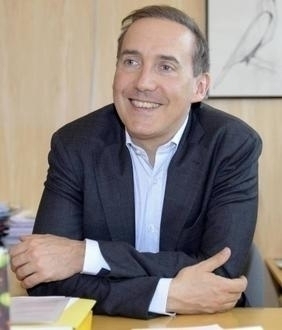Commons

GAËL GIRAUD : “IT IS ESSENTIAL TO MANAGE WATER AS A ‘COMMON’"
© Éric Thauvin / AFD
Water is a scarce resource and its related services need to be considered as “Commons”, according to AFD’s Chief Economist, Gaël Giraud. Public authorities and the private sector have a major role to play in this scheme.
For some ten years now, AFD has been conducting research on managing water as a “Common” in various countries (Jordan, Democratic Republic of Congo, Bolivia). Why have you chosen this approach?
Water is a perfect example of a Common [watch our video on this subject]. It is in short supply, subject to an oceans/clouds/rains/rivers cycle, which is seriously disrupted by climate change, and is likely to be overexploited if no preservation rule is established.
Our research on groundwater in the Mediterranean has shown that managing water as a Common made it possible to get out of unregulated competition over the resource, which can only lead to its depletion. This is vital in a context where there is already an acute water shortage: for example, not only does Tunisia suffer from water stress all year round, Korea has also declared that it is faced with a water shortage. Today, 800 million people around the world do not have access to drinking water, and this number can only rise in the coming years if strong measures are not taken.
In our areas of operation, users’ communities have been organized and have established common rules for managing and sharing water resources. The “Tragedy of the Commons”, which runs contrary to what the Hardin vulgate reiterates, is that the outright privatization of water resources eventually eliminates them. Common rules, defined in a participatory manner with all stakeholders, are the only way to safeguard scarce resources such as water, but also biodiversity, fishery resources, land, a money circuit for the real economy, and the skills available in employment centers.
You focus on users’ communities. Does this mean that the State or private sector do not have any role to play?
The Commons are a hybrid mode of governance, neither totally private, nor totally public. Most of the users’ communities we study have been created to remedy the shortcomings of public services (in regions where public authorities have often failed, or have never really recovered from the structural adjustment plans of the 1980s) and avoid the tragedy of outright privatization.
This does not mean that the State or private sector have no role to play. On the contrary, the State creates the legal framework conducive to the creation of users’ communities and must continue to be the first to guarantee the right to access to drinking water and sanitation for all. The private sector, for its part, can contribute to developing infrastructure, for example.
You now have a rich corpus of research on this issue. What are the potential avenues which still need to be explored?
The coordination between the levels of governance of the resource – from local to international and including regional – and the balance of power related to the various uses of the resource (agriculture, energy, drinking water, minerals) are aspects which have still not been sufficiently studied. The subject of sanitation as a Common is also a subject which has so far been totally unexplored. It would merit an in-depth study, as it is a fundamental issue for the majority of the developing countries in which we operate. Indeed, it is unrealistic to think that we can improve the level of health in a region by improving access to water if, at the same time, we do not take care of wastewater disposal and treatment.
https://www.afd.fr/en/gael-giraud-it-essential-manage-water-common